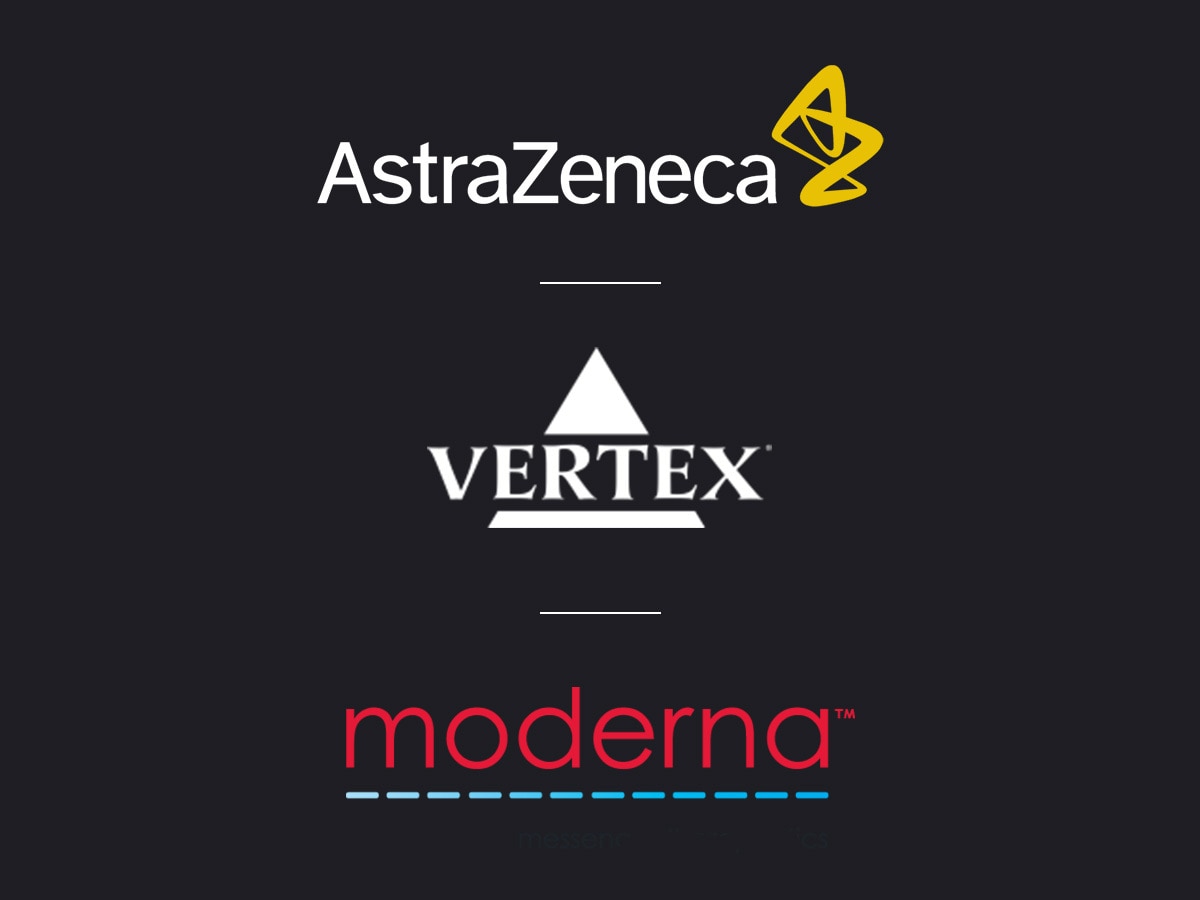In the face of economic uncertainty and falling demand for Covid-19 vaccines, some biotech stocks have taken a hit this year. As companies such as Vertex, Moderna and AstraZeneca pursue opportunities for innovation in the healthcare space, their share prices could see a much-needed boost.
The scramble to produce treatments for Covid-19 reminded many stakeholders of the importance of biotech companies’ research and development (R&D) and rapid innovation cycles, which had benefitted key players in the sector such as AstraZeneca [AZN.L], Moderna [MRNA] and Vertex Pharmaceuticals [VRTX].
As vaccine demand dies down amid general market jitters caused by fears of rising inflation, the biotech market has taken a bruising in recent months. The iShares Nasdaq Biotechnology ETF [IBB] was down 28.4% year-to-date at the close on 11 May. Moderna has been caught up in the selloff, while shares in AstraZeneca and Vertex have bucked the trend in comparison.
Despite this, the underlying investment case for biotech stocks still holds true in both the short- and long-term. As Schroders analyst John Bowler pointed out in a research note, populations are ageing in developed countries and this is leading to increased demand for healthcare. He added that opportunities will open up “as the need for care increases in parallel with life expectancy”.
Vertex looks beyond cystic fibrosis
The Boston-based biopharmaceutical company develops and commercialises innovative medicines for diseases. Until now, its primary focus has been cystic fibrosis. Its drug Trikafta/Kaftrio, which improves lung function and helps patients to breathe more easily, has received approval from the UK, US and European Commission over the past few years.
Having achieved a huge share of the cystic fibrosis market, Vertex is looking to move into multiple other markets, including diabetes, kidney disease and sickle cell disease.
Investors appear to be optimistic about the change in redirection, with the Vertex share price bucking the wider trend of falling biotech stocks. The stock was up 6.9% year-to-date to $234.96 at the close on 11 May and had set a 52-week high of $292.75 on 14 April.
“Our R&D strategy combined with our business model positions us well for continued innovation and sustained growth” - Vertex CEO Reshma Kewalramani
“The company is now at a new inflection point with continued growth in cystic fibrosis,” Reshma Kewalramani, CEO of Vertex, said in its first-quarter 2022 earnings call in May. Sales generated by Trikafta/Kaftrio climbed 47.4% in fiscal 2021 compared with a total revenue growth rate of 22.1%.
“Our R&D strategy combined with our business model positions us well for continued innovation and sustained growth as we work to bring additional transformative medicines to more patients around the globe,” he added.
AstraZeneca’s move into rare diseases
While AstraZeneca’s sales continued to be boosted by its Covid-19 vaccine, demand is expected to wane as vaccination programmes wind down.
Revenue for the first quarter of 2022 jumped 56% year-over-year. Oncology remains the UK pharmaceutical giant’s bread and butter and its best performing sector, with cancer drugs accounting for 30% of total sales in the first three months of the year. However, its rare diseases segment is likely to play an important role going forward as the company seeks to diversify its portfolio and sales streams.
Following the company’s $39bn acquisition of Alexion, which closed in Q3 2021, rare diseases accounted for 8% of total revenue for the year and a 15% share of Q4 sales. The segment also had a 15% share of Q1 2022 revenue.
Alexion primarily sells to the US and Europe, but with AstraZeneca’s foothold in other regions, including emerging markets, Alexion will be able to expand its reach. Analysts at Hargreaves Lansdown have suggested that if the company can execute the Alexion integration right, it could help to squash its debt.
56%
Year-over-year jump in AstraZeneca's revenue in Q122
The strategic takeover has been a tailwind for the AstraZeneca share price, which has risen 17.4% in the year-to-date to 10,026p at the close on 11 May. The stock recorded an all-time high of 11,000p on 8 April.
Moderna eyes up post-Covid-19 vaccine M&A activity
The first quarter of 2022 was a blow-out for Moderna. It more than tripled its net income from $1.2bn in 2021 to $3.66bn. The company sold $5.9bn worth of its Covid-19 vaccine and has full-year guidance of $21bn. This could end up being higher as it doesn’t factor sales from the US, which only granted the vaccine full approval in January.
Despite the better-than-expected earnings, the Moderna share price has dropped 51.4% since the start of 2022 (through 11 May) and was one of the S&P 500’s biggest declines in the early part of this year.
Looking ahead, the focus for the company will be on how to put its $19.3bn, up from $17.6bn at the end of Q4 2021, cash pile to work that it had amassed by the end of March. The company is said to be investing in its product pipeline as well as potential M&A activity.
CEO Stéphane Bancel told analysts on the earnings call: “In terms of M&A, I can tell you our teams have never been as busy… They are looking at a lot of opportunities literally across the world.
Although Bancel hasn’t given any indication of potential targets, gene editing has been talked up as an area of interest. “We would be very happy to buy the right company that we really believe will drive value to Moderna on a commercial basis,” he added.
Continue reading for FREE
- Includes free newsletter updates, unsubscribe anytime. Privacy policy





